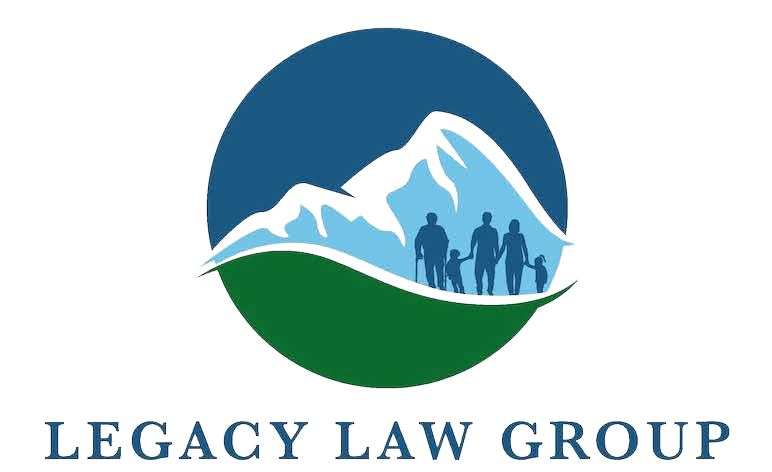You don’t have to be a famous producer or household name to own intellectual property. If you create music, own a business, write stories, or build gadgets in your garage, you almost certainly have intellectual property. However, because intellectual property is intangible, it’s often overlooked in estate planning.
And if you do have intellectual property, it may hold significant sentimental and even monetary value for you and the people who love you. Without properly planning for these works in your estate plan, your family could lose these valuable assets forever.
Even if you’ve worked with a lawyer to set up your business, write a will, or file your taxes, those professionals may not be thinking about what happens to your intangible assets upon your death. Many lawyers who focus on estate planning don’t really understand the value of intellectual property and how to protect it. We do, and now so will you.
It’s essential that you take the proper steps to not only protect these intangible assets during your lifetime but also ensure that your intellectual property is properly handled following your death. That way, the monetary and human value of your intellectual property isn’t lost forever when you die.
Safeguard Your Intellectual Property During Life
While you might think that identifying, protecting, and valuing your intellectual property is something that only applies to big companies and famous artists, that’s definitely not the case. Your intellectual property has sentimental value to your family and may have more monetary value than you realize, and could be of even greater value to your loved ones after you’ve died.
The first step to take in protecting your intellectual property is to formally document it in an inventory of assets that describes what the asset is, where it’s located, and how to access it if it’s a digital or intangible item. This is something I help all of my clients create to ensure that no asset, whether tangible or intangible, is left out of their plan or lost when they die.
The next step is to consider if any of your intellectual property should be legally registered in the form of trademarks, copyrights, or patents with the U.S. Patent and Trademark Office. Original works are automatically copyrighted when you create them, but without legally registering your copyrights, it can be difficult to prove and enforce your copyright if someone steals your work and presents it as their own. If you’re lending, renting, licensing or selling anything you’ve created to a third party, it’s also important to have the proper legal agreements and contracts in place to ensure there’s no question about who owns the material.
Likewise, if you own a business and have not protected your intellectual property with copyrights, trademarks, patents, royalty and licensing agreements, non-competes for employees, and work-for-hire provisions in your existing agreements with independent contractors and vendors, now is the time to do so.
Don’t wait until your intellectual property is stolen or you receive a cease-and-desist letter to put these protections in place. Registering a trademark or copyright might cost you time and money, but failing to register your original works can cost you far more than that in legal fees or the lost value of your assets, especially if your family ends up in court trying to fight for what you created.
Protect Your Intellectual Property for Future Generations
In addition to protecting your intellectual property during your lifetime, it’s equally important to plan for what will happen to these assets at your incapacity or death, and to protect your heirs from a potentially long and costly court battle over the ownership of your intangible assets.
The most important thing is to make sure that your family can locate and access your intellectual property after you’re gone. Otherwise, your work could be lost forever.
Once you’ve created an inventory of your assets, you’ll need to make sure your loved ones know how to find your inventory so that if you die or become incapacitated they can easily locate and access your assets. Your inventory should also include how each asset is accounted for in your estate plan and whether you share ownership of any intellectual property with another person or company.
To make sure all of your assets are planned for in the right way, it’s imperative to meet with an estate planning attorney who has the experience and knowledge to plan for your intellectual property and protect any future income the property may generate for your loved ones.
Your attorney should help you plan for each asset, who will inherit it, how its value will be distributed, and how income generated from it will be used, all while avoiding the need for a long and costly probate proceeding.
If you think this all sounds overly complicated, imagine how much more difficult it will be for your loved ones to deal with it should something happen to you. In fact, it could prove impossible for your loved ones to handle these matters in your absence, which is why it’s so important for you and your legal team to take care of these issues now. That way, your family isn’t stuck trying to clean up your mess after your death.
Planning for All of Your Assets, In The Best Way
While you might not be a famous author, artist or musician (yet), you very well may have valuable intellectual property, and chances are that property has not been properly documented or accounted for in your estate plan. Besides monetary value, your pieces of intellectual property are unique creations that reflect your heart, soul, and personality that your family will cherish for years to come.
To make sure all of your assets are protected and planned for, including your intellectual assets, give us a call. As your Personal Family Lawyer® firm, we offer expertise in documenting, valuing, and protecting your intangible assets so your loved ones can benefit from these creations for generations to come.
Click the link to schedule a free 15-minute call with me to learn more.









